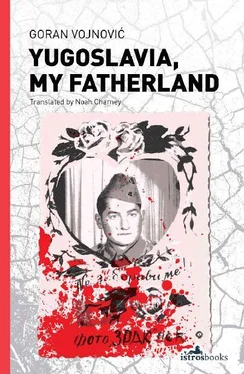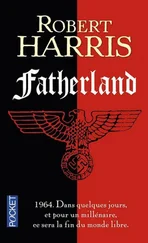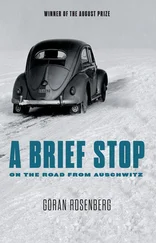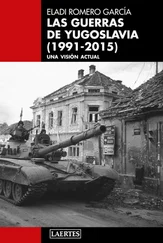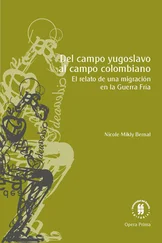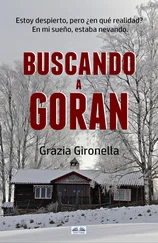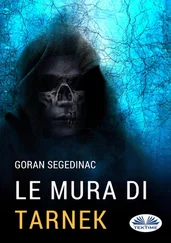But as luck would have it, Lieutenant Nedelko, on the very evening that should have been the most special of his young life, failed to remember that it was Thursday. Thursday evenings saw a special ritual at the Karl Rojc Barracks. Around seven, Colonel Neven Barac, fresh from the shower and anointed with smuggled Italian cologne, set out for dinner at the Fisherman’s Shed Restaurant with his mistress, Zhana. The soldiers in Pula were well aware that the good colonel was officially on call at the barracks on Thursdays, and that he also, unofficially, cheated on his wife, Ivana, in room 132 of the Brioni Hotel, his coital maneuvers squelching over a stomach full of grilled squid, mixed salad and a litre of red wine. But the soldiers guarded this secret as if it were treasonous to release it. When Ivana called, as she did on rare occasions, they meticulously served their country by explaining to the wife, without a blush of guilt that ‘Colonel Barac can’t come to the phone right now.’ Only once had a new-recruit, an ethnic Albanian, told Ivana that ‘the colonel is in the barracks, but not exactly in the barracks,’ but Barac had managed to explain this away by saying that the man understood Serbian well enough, but hadn’t known what he was saying. And so the secret remained secret.
Those who maintained those secret Thursday nights were well-rewarded, not only for those expected to respond to potential calls from the cuckolded wife, but also for the guard duty of having to ‘keep a close eye on Captain Muzirović, and not let him out of barracks for all the tea in China.’ You see, Neven Barac’s Zhana had once been Captain Emir Muzirović’s Zhana, until the latter had discovered, to his horror, that there were multiple officers in her life, to which fact he responded that he didn’t ‘waste his time and his cock on whores.’ But of course Muzirović never really got over her and put on a brave face, as he knew that she secretly met with his married friend, Neven Barac. Unlike the impassioned Muzirović, Barac spent only his time and reproductive organ on Zhana, and wasn’t in the least bothered with whatever she might be doing, if it was not a Thursday. But Thursdays were killing Muzirović.
He finally broke down while watching his friend prepare for one such Thursday, whistling a popular song, ‘This is Our Night.’ First he ritually downed a litre of Lieutenant Borojević’s grape schnapps, in a further attempt to repress his pain and then, at the climax of his delirium, vacillated between a desire to apologize to Zhana on his knees for his ugly words, then propose to her, right in front of Barac, the restaurant staff, and any random cluster of German tourists or, Option B, throwing Barac through the window of the Fisherman’s Shed Restaurant, straight into the sea. But rather than enact either of these options, with a little help from the soldiers on duty, he merely fell asleep in his office, putting off the difficult decision of whether or not to snap into action until the following Thursday.
Alas, it was the following Thursday that Dusha fled Ljubljana, and the soldiers on duty were sparse since Filipovski, the flag-bearer on call, had forgotten to tell anyone what it really meant to be ‘on duty’ on Thursdays. So Nedelko Borojević was on his way out of the barracks, when he noticed the conspicuous absence of any snoring coming from Captain Muzirović’s office. A minute later, Filipovski announced that Muzirović had left the barracks, drunk, shouting ‘I’m gonna fuck fishing pimps and their pimpy fish,’ whatever that meant, but Filipovski knew what would happen next. Instead of going to the train station, Borojević was forced to sprint to the Fisherman’s Shed Restaurant, to intercept a disaster of wide and resounding social dimensions. This meant that Dusha Podlogar was left without a rose and a thorn-scratched hand for the first time and was abandoned that evening, like a lost little girl, with her two small suitcases on Platform 2.
Who knows if it was because she had nowhere else to go, or simply because Dusha Podlogar was the way she was but, after waiting an hour, Borojević’s ‘Slovenian girl’ marched directly to the barracks. She stormed past the guards, as decisively as a military parade, and almost bumped into Lieutenant Borojević and Colonel Barac as they jointly supported the dead drunk and snoring Captain Muzirović. When he saw Dusha, Borojević dropped the captain in astonishment, so that he fell to the floor, which did little to sober him up. Barac thought Dusha was a lost tourist, and was about to step forward and direct her to the nearest hotel, when she spoke.
‘Nedelko, marry me. For God’s sake.’
At this, Captain Muzirović began to shout from the ground that no one should mention God in the barracks and that, in front of the ‘honest world,’ they would all marry her if she so wished, and that he was ordering Nedelko Borojević to marry this brave comrade. Nedelko himself seemed to be wrestling with his own neck muscles, but he finally nodded. Dusha dropped her two small suitcases and jumped into his confused arms.
My mother asked my father to marry her on 9 March 1978, and the big event came two days later, on Saturday, 11 March, despite a brief intervention from best man, Captain Emir Muzirović. He was still nursing the worst headache of his life and, while the bride and groom kissed, he swore to himself that he would never so much as smell grape schnapps again, deciding to drink only plum brandy from that day forth.
In the middle of one of the longest nights of my life, our chauffeur, Shkeliqim Idrizi, noticed that I couldn’t get to sleep, and started explaining to me, in a whisper, that the lights to our left came from Hungary, the lights to the right from Bosnia, and that Serbia and Vojvodina were straight ahead of us, where there were no lights to be seen. He went on to tell me that if you drive on from Belgrade, taking the road past Niš and Užice, you’d reach Kosovo and his village, where Fadil Vokrri’s father had also been born. My blank stare disappointed Shkeliqim — I’d never heard of the greatest of Kosovan football players.
His whisper-tour of our motorway path eventually helped me to sleep and, when I woke, it was dawn and our truck was parked in front of Belgrade’s Bristol Hotel.
Now I stood before the apartment building where, according to Dusha, General Borojević had last lived. It was typical socialist architecture; a large cube of the sort found all over the former Yugoslavia which, despite its lack of grace and cheap materials, for some reason inspired a sense of pride in me, for its opaque view of architecture and, through it, life. As I entered, a familiar smell greeted me. I had the impression that I had once been to a similar place, but I couldn’t recall where or when, and at that moment I didn’t have time for nostalgia. I reasoned that a war criminal at large wouldn’t use his real name, and so I had to search for other traces of his presence.
The building was arranged with two apartments on each floor. From the Korač family apartment on the second floor, all the way to the entrance, I could hear children’s voices. On the doormat before the Mitrović’s door, sat a pair of patent-leather shoes far too small to be Nedelko’s. It was calmer on the third floor. One door was labelled Vukmirović & Kebo, while opposite lived Dr Mehmed Dizdar. I was pretty sure I could eliminate these, too. I was pretty sure that Nedelko had lived or, I hoped, continued to live, alone in Brčko, and I was even more certain that he would not know how to play the role of a doctor, even if he had been taught role-playing at a military academy for years. So I continued up the stairs towards the screaming, hustling, bustling Ćubrilo family, while Vasa Đorđić’s door opposite sounded more promising. I approached but couldn’t hear anything aside from the jungle of the Ćubrilo family, with someone calling out for Zorica, and Zorica shouting that she was coming right away. On the top floor, the Babić family had pots of fresh flowers around their threshold, while a bunch of newspapers had piled up on the doormat of the Zdravković family. I checked the dates, and they were recent — dailies from last week.
Читать дальше
